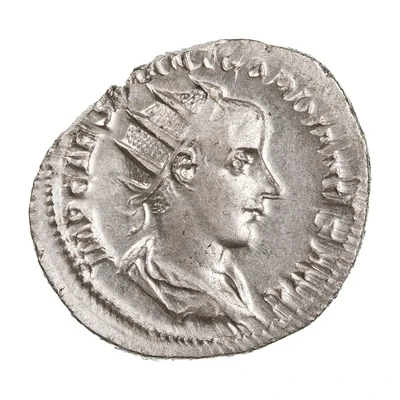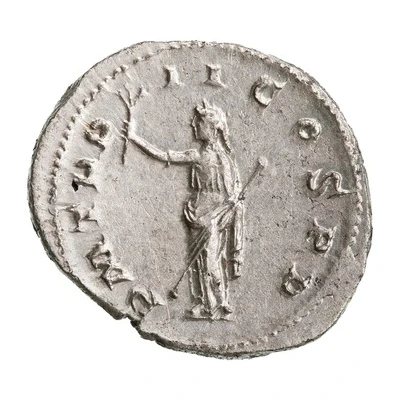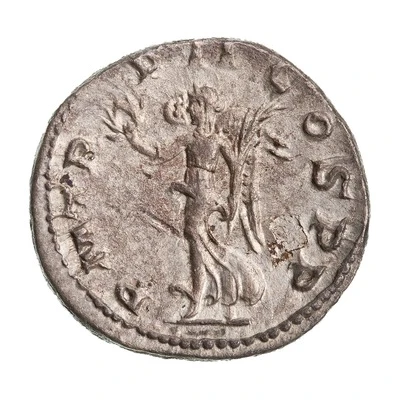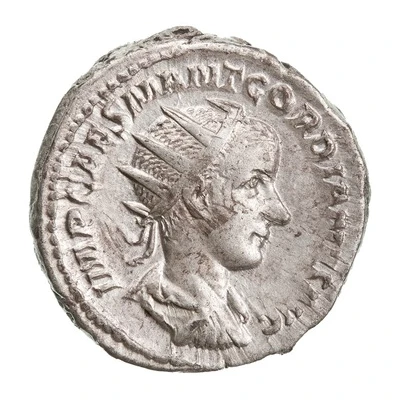
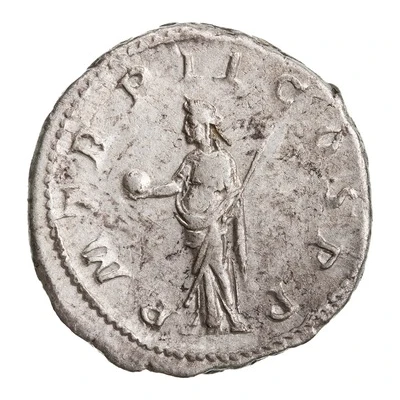

© American Numismatic Society (ANS)
Antoninianus - Gordian III P M TR P II COS P P; Providentia
239 year| Silver | 4 g | 22.5 mm |
| Issuer | Rome › Roman Empire (27 BC - 395 AD) |
|---|---|
| Emperor | Gordian III (Marcus Antonius Gordianus) (238-244) |
| Type | Standard circulation coin |
| Year | 239 |
| Value | Antoninianus (1) |
| Currency | Antoninianus, Reform of Caracalla (AD 215 – 301) |
| Composition | Silver |
| Weight | 4 g |
| Diameter | 22.5 mm |
| Shape | Round (irregular) |
| Technique | Hammered |
| Orientation | Variable alignment ↺ |
| Demonetized | Yes |
| Updated | 2024-10-05 |
| Numista | N#280746 |
|---|---|
| Rarity index | 91% |
Reverse
Providentia, draped, standing front, head left, holding globe in extended right hand and transverse sceptre in left hand.
Script: Latin
Lettering: P M TR P II COS P P
Translation:
Pontifex Maximus, Tribunicia Potestate Secunda, Consul, Pater Patriae.
High priest, holder of tribunician power for the second time, consul, father of the nation.
Comment
Mass varies: 2.25–4.75 g;Diameter varies: 21.5–23 mm;
Example of this type:
American Numismatic Society (ANS)
Source:
Online Coins of the Roman Empire (OCRE)
Interesting fact
The Antoninianus coin , which features Gordian III and was minted in Rome during the Roman Empire (27 BC - 395 AD), is considered a rare and valuable coin among collectors. It's made of silver and weighs 4 grams, which was a significant amount of silver at the time. The coin's design features an image of Gordian III on one side and the goddess Providentia on the other, symbolizing the Roman Empire's prosperity and good fortune. It's interesting to note that the coin was minted during a time of great turmoil in the Roman Empire, with Gordian III facing numerous challenges during his reign, including invasions by barbarian tribes and internal political conflicts. Despite these challenges, the coin remains a testament to the enduring legacy of the Roman Empire and its influence on the development of coinage and currency.
